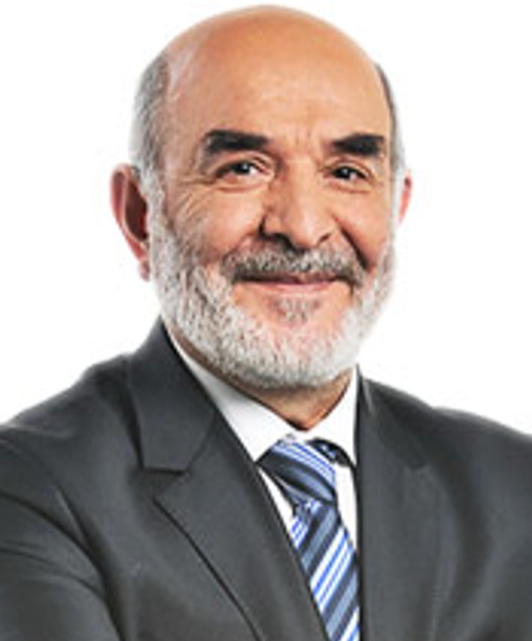
Suriye’deki Kürt sorununu çözmek
Türkiye’nin “Suriye hassasiyeti”nin odağında YPG-PYD’nin oluşturmayı hedeflediği yapının bulunduğu açık.
Bu bir “Kürt yapılanması.”
Evet, Suriye Demokratik Güçleri (SDG) çatısı altında bulunuyor, SDG yapısı içinde Araplar da var, ama baskın gücü YPG-PYD oluşturuyor. Amerikan koruması da YPG-PYD etrafındaki Kürt oluşumu üzerinde.
Siyasi boyut olarak YPG 2003’te, silahlı yapı olarak PYD ise 2011’de kurulmuş. Yani 20 yıllık bir yapılanmadan söz ediyoruz.
IŞİD’le mücadele misyonuyla ABD tarafından korunup kollanan, eğitip – donatılan bir yapı bu. Yerel teşkilatlanması var, silâhlı gücü var.
Evet, ilk cümlede ifade ettiğim gibi, Türkiye’nin “Suriye hassasiyeti”nin odağında bu yapı bulunuyor. Türkiye bu yapıyı kendi güvenliği için tehdit olarak görüyor.
Tehdit değerlendirmesi, “Kürt varlığı”ndan değil, Türkiye bunu defaatle açıklamış durumda. “Tehdit değerlendidrmesi” PYD-YPG’nin PKK ile irtibatından kaynaklanıyor. Türkiye, içerde – dışarda en azından 40 yıldır PKK ile mücadele ediyor. Bedeli tarife sığmaz.
PKK’yı tıpkı bizim gibi ABD de terör örgütü olarak tanıyor. Ama YPG-PYD’ye bizim gözümüzle bakmıyor ve o yapının “Devletleşme” yolunda ilerlemesi için her türlü imkânı ve korumayı sağlıyor. En son, 20 Ocak’ta yapılacak Trump’ın devir – teslim törenine Mazlum Kobani’nin davet edildiği bilgisini de buraya ekleyelim.
YPG-PYD yapılanmasının iki “müttefik” olan Türkiye – Amerika ilişkilerinde en kritik başlıklardan biri olduğu biliniyor.
Şimdi Suriye’de kaos var, ama yeniden yapılanma gerçekleşecek. Türkiye başat rolde gözüküyor. Ama en azından iki alanda etkisinin sınırlı olduğu da gözleniyor: İsrail’in atakları ve Fırat’ın Doğusundaki yapılanma.
Fırat’ın Batısında YPG -PYD varlığı en aza indirilmiş olsa da, Doğu’da, Türkiye sınırına kadar geniş bir bölgeyi SDG kontrol ediyor, ağırlıklı olarak YPG-PYD.
Soru şu: Suriye’deki Kürt varlığı ile sorunu olmadığı ifade edildiğine göre, Türkiye’nin, kendisini “Kürt yapılanması” olarak takdim eden YPG-PYD politikası ne olacak? Orada bir “Ayrıştırma zorluğu” var. Türkiye olarak Suriye’de YPG-PYD’nin bütün Kürtleri temsil etmediği, hatta Kürtler üzerinde baskı uyguladığı gibi tezleri seslendiriyoruz. Muhtemelen diğer Kürtlerin Suriye bütünü içinde eşit vatandaş olması gibi bir durumu dillendirmiş oluyor, ayrı bir “Statü” edinilmesini istemiyoruz. Ama artık 10 yılları bulan bir süreçte, tabii ki ABD’nin korumasında bir “Statü” kazanıldığı da açık.
Meselenin asıl hassas tarafı biliyoruz ki Türkiye ile ilgili. Türkiye’de de bir “Statü” mücadelesi veriyor siyasi Kürt hareketi. Evet, en son ismi DEM olan siyasi Kürt hareketi, Türkiye’de de bütün Kürtleri kapsamıyor ama “kimlik boyutu”nda öne çıkış kaçınılmaz olarak siyasi yapılanma ile bağlantılı.
Türkiye’deki siyasi Kürt hareketi, Suriye’deki PYD-YPG yapılanmasını sahipleniyor. Oraya yönelik “Ankara politikası”nı adeta bir “iç politika olayı” çerçevesinde görüyor ve “Kürt siyasi bilinçlenmesi”ne aktarmaya çalışıyor.
Burada Ankara’nın tavrı ile DEM’in yaklaşımı, “ters taraftan” birbiri ile çakışıyor.
“Ters taraf”tan, yani Ankara’nın yaklaşımı DEM’in “siyasi bilinç” hesabını besliyor, DEM’in yaklaşımı da Ankara’nın “statü” ile ilgili kaygılarını…
Türkiye’nin “Dış Kürtler” diye tanımlanacak alanla ilgili “kaygı”ları yeni değil. Dışarda edinilecek her “statü”nün içeriye yansımaları tedirgin etti Ankara’yı… Bölgedeki kaos ortamları, bu kaygıyı besledi. Çünkü bölge ile oynayan küresel güç odaklarının hesabı yaralı alanları kaşımaya göre kurgulanıyordu.
Sorun şu ki, biz de, ya da coğrafyamız da yaralı alanları tedavi etme hünerini gösteremiyorduk.
Kuzey Irak’ta oluşan Federe Kürt Yönetimi Irak için mi sorundu bizim için mi? Daha şimdilerde olayı normalleştirme aşamasındayız.
Suriye sanki Irak’tan daha çok “iç sorun” niteliğine bürünmüş gibi. “İç sorun” ama uluslararası boyutu da daha az sarsıcı olmayan bir sorun. O kadar çok tartışma alanı var ki…
Mesela Bahçeli’nin seslendirdiği, Türkiye’deki bütün etnik kimlikleri kapsadığı var sayılan “millet tanımı”nı ele alsak, Suriye’de onun nasıl ete-kemiğe bürüneceği hususu bile kolay bir ikna alanı gibi görünmüyor.
Hani Bahçeli’nin “Fiili olanı hukuki hale getirelim” diye bir sözü vardı, başka alanda, uluslararası ortamda ise başkaları söylüyor onu… Mesele güç ile alakalı. İslâm ülkeleri, Türkiye dahil, epeyce bir zamandır kendi göbeğini kendi kesme dirayetini gösteremiyor. Coğrafyamızın perişanlığı bundan…
Rusya ve İran’la ilişkiler de artık ABD – Batı ile gerilimlerde sörf yaptığımız dalgalar değil. Suriye’de olan bitenin Türkiye için en çetin sınamalardan birini oluşturduğu söylenebilir.
